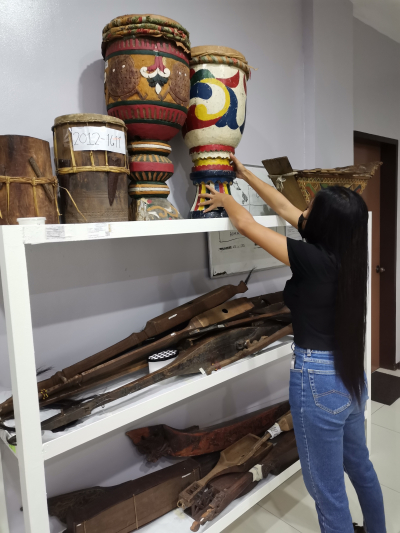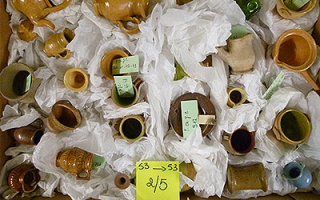Collections exist in many forms in museums, libraries and archives. Then, there are the community-owned heritage collections, religious collections, online-only collections, seed banks and biobanks.
All serve valuable functions in society. They help people access and understand their cultural heritage and are important resources for education, lifelong learning and research. Collections and collections-based organizations also support tourism and the creative economy.
Our collections already make – or have the potential to make – many positive contributions to humanity. On the other hand, collections-based organizations can have negative impacts, for example, through the resources they use, the waste they generate and their contributions to climate change.
OCM supports collections-based organizations that want to turn their sustainability aspirations and commitments into action. The programme is fully aligned with the UN 2030 Agenda, with its themes of “transforming our world” and “leaving no one behind.”
By providing practical tools and building capacity, ICCROM and our partners help organizations play their part to the fullest while ensuring that collections-based work is valued as a key factor in sustainable development by the heritage sector and other sectors.
Join us on this collective sustainability journey to maximize the potential of our collections and help make the world a better place.
Contact the OCM team at collectionsmatter@iccrom.org
Sustainability in Focus
Sustainability means the ability to last or persist. It can be applied to individual organizations, whole sectors, communities or the entire planet. In development terms, sustainability has come to mean the balance between considerations of society, the environment and the economy.
Sustainable development is a focused activity that helps to make a sustainable future a reality. The concept of sustainable development primarily grew from the work of the Brundtland Commission (1987), established by the World Commission on Environment and Development, where it was defined as “development that meets the needs of the present without compromising the ability of future generations to meet their own needs.”
The main programme to support sustainable development globally was agreed upon by the world’s governments in 2015. This is the UN 2030 Agenda, which has the following five main aims:
People
To end poverty and hunger in all their forms and dimensions and ensure that all human beings can fulfil their potential in dignity, equality and a healthy environment.
Planet
To protect the planet from degradation, including through sustainable consumption and production, sustainably managing its natural resources and taking urgent action on climate change so that it can support the needs of present and future generations.
Prosperity
To ensure that all human beings can enjoy prosperous and fulfilling lives and that economic, social and technological progress occurs in harmony with nature.
Peace
To foster peaceful, just and inclusive societies free from fear and violence. There can be no sustainable development without peace, and no peace without sustainable development.
Partnership
To develop a Global Partnership for Sustainable Development based on a spirit of strengthened global solidarity, focused in particular on the needs of the poorest and most vulnerable and with the participation of all countries, all stakeholders and all people.
Our Collections Matter is underpinned by a conviction that collections can play a fundamental role in making these ambitions a reality.
Explore further
- Explore the Sustainable Development Goals
- Transforming Our World: the 2030 Agenda for Sustainable Development
- The Sustainable Development Goals Report 2021, United Nations (2021)
- Sustainable Development Report, SDSN (2021)
- Nations United: urgent solutions for urgent times (short film by Richard Curtis on the Sustainable Development Goals)
Preventive Conservation
Read more about preventive conservation here.



